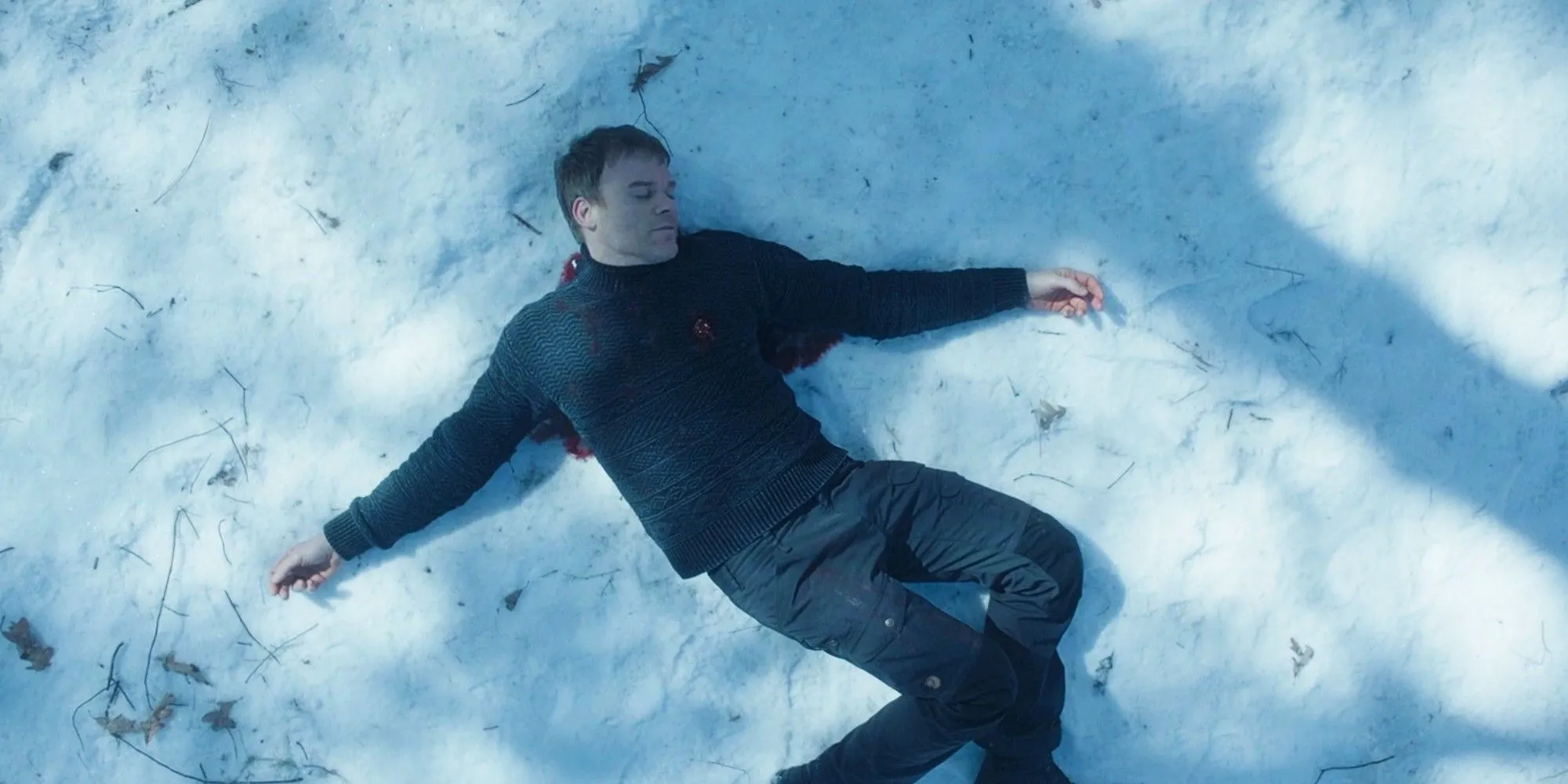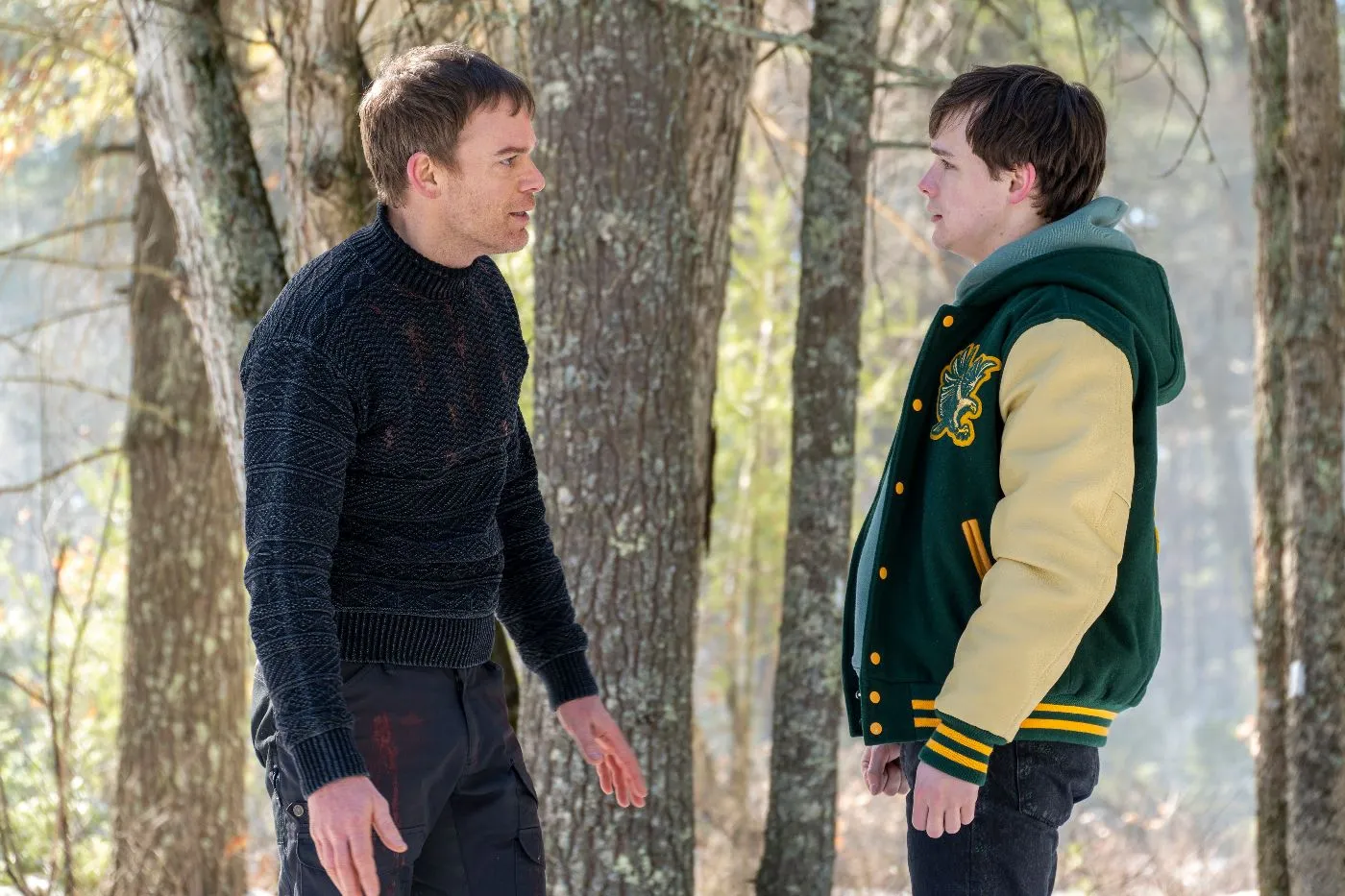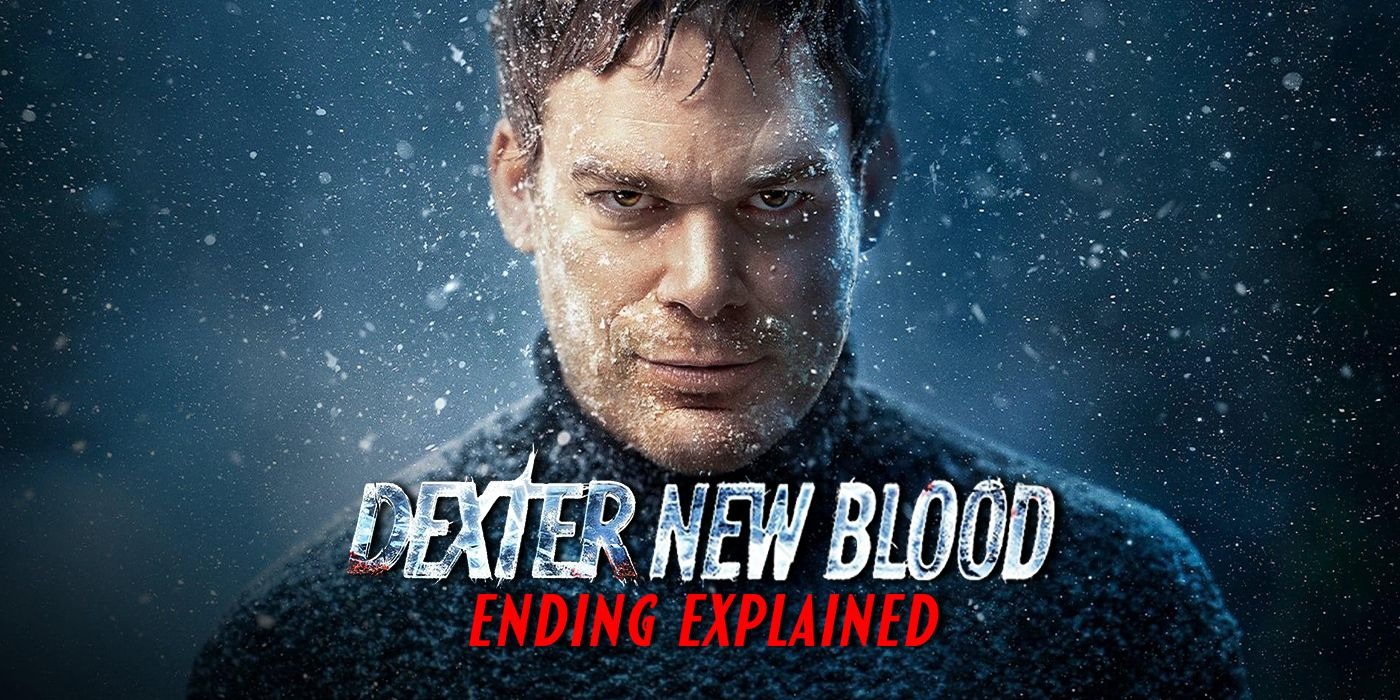Bringing Dexter back only made sense if he was going to be held responsible for his past. New Blood decided to challenge the way viewers had come to accept the charming yet cold-hearted killer, whom many had been treating like a dark version of a superhero rather than a violent addict obsessed with taking lives.
But Dexter was never truly a hero. He left serious damage in his wake, starting with the psychological torment of his sister Debra. He was the root cause behind Maria LaGuerta’s death and also played a direct role in Rita’s murder.

On top of that, he abandoned his child and continuously broke his own self-imposed “code” without any real remorse. While characters like Tony Soprano and Walter White were framed in a way that exposed their monstrous behavior from start to finish, Dexter often failed to hold its central figure accountable.
The later seasons painted him as someone doing necessary evil when he was just feeding his obsession. With New Blood, showrunner Clyde Phillips didn’t give Dexter another pass—unlike what happened after season seven. This time, Dexter faced the results of his selfishness and arrogance.
What Dexter: New Blood Is About
Forget what people say about the Trinity Killer storyline—season 2 is the one that best explains what Dexter was always about. At its core, it was a story about addiction. The show used Dexter’s need to kill as a metaphor for how addiction causes destruction, not just for the person dealing with it, but also for those close to them.
While the revival also focused on the father-son relationship between Dexter and Harrison, New Blood emphasized the idea of relapse. When Dexter gives in to his compulsion again, he gets excited when he sees the same darkness in Harrison, and he starts nurturing it.
By doing that, he’s not just encouraging Harrison—he’s trying to keep his cravings alive. Instead of treating Harrison’s trauma with care, Dexter turns his son into a mirror. He pushes hard for Harrison to see him as this noble figure who uses his instincts to protect people.
His actions, however, come from a place of selfishness. He wants Harrison to understand him so badly that he uproots the boy’s life even after Harrison finally finds some stability. He pretends he can stop anytime, even while standing in the blood of an innocent man.
Although some viewers feel like Dexter’s mask was stripped too quickly, when looked at alone, the final episode portrays him as a wild animal that must be stopped. Watch the way Dexter’s eyes flicker toward a knife while Angela is arresting him—it’s a quiet threat, hinting that she might end up like every other officer who tried to catch him.
Compare his interrogation with that of Kurt, and you’ll see that both men act smug and confident in their lies, assuming they’ll talk their way out of it again. Dexter continues using the vigilante angle, not because he wants justice, but because it makes him feel important. He only cares about his own life, not anyone else’s.
Logan’s Death and the Moment Harrison Saw the Truth
Out of everything Dexter does in “Sins of the Father,” what truly crosses the line is when he kills Logan. At first, he tries to escape without killing anyone, but the moment Logan reaches for his weapon, Dexter lets instinct take over and kills him to protect himself.
This murder was necessary for the story. For Harrison to fully understand who his father was, he had to witness Dexter violating the one rule he always claimed to follow. And Logan wasn’t just another cop—he was Harrison’s wrestling coach, someone who symbolized the normal life the boy could have had.
Dexter destroyed that chance, and it was the last straw for Harrison. It’s at that point that Harrison starts acting on the same code Dexter lived by. He repeats Dexter’s own words—asking him to take a hard look at the damage he’s caused.
Then, using the same weapon Dexter had given him earlier, Harrison kills his father. The moment is symbolic. He leaves Dexter lying in the snow, just like the white deer from the beginning of the season, a symbol of something rare and unnatural that didn’t belong.
Issues Fans Had With the Final Season
That’s not to say Dexter: New Blood didn’t have its flaws. Plenty of people complained about how convenient or inconsistent some plot points were, which is ironic considering those problems had been around since the show began. Some of the issues include:
– Edward Olsen being used as a red herring
– Dexter gets shot in the leg in episode 8 but shows no sign of it in episode 9
– Batista randomly linking up with Angela and bringing up Dexter and Harrison
– Molly Park coming to town just to investigate one missing person
– Kurt’s strange plan involving the fuel truck
– The confusion around ketamine and M99
– Dexter and Harrison spending Christmas with Angela and Audrey despite both couples breaking up
– Footprints in the snow do not add up
– Dexter has a believable excuse for the titanium screw because Elrich handed it to Harrison

There were more plot gaps like these, yet despite all that, Dexter’s ending felt earned. Whether it was because he came to understand the impact of his crimes or because he didn’t want to spend the rest of his life on the run or behind bars, Dexter allowed Harrison to shoot him.
Truthfully, though, it’s more likely that Dexter couldn’t stand the idea of losing control over his story. From the beginning of the show, he had always been the one telling it.
The Real Reason Dexter Let Harrison End It
Some viewers might say that even in his final moments, Dexter was still trying to make it about himself. They argue that by getting Harrison to kill him and use the code, Dexter is making one last attempt to shape the way he will be remembered.
Others claim that Dexter wouldn’t have killed Logan and that he would have gotten away with everything again. But those fans just wanted more episodes, ignoring all the signs that Dexter had stopped being someone worth rooting for a long time ago.
The ending New Blood gave him is the only one that fits with the life he lived. This emotional story is available to stream right now on Amazon Prime Video.



